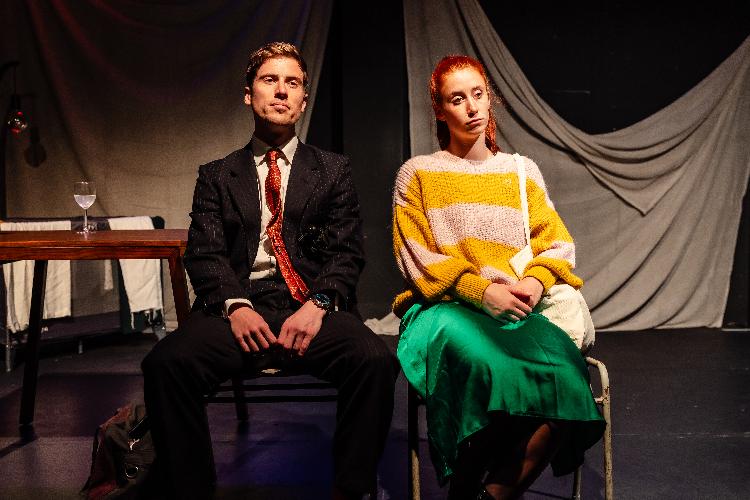Anything is Possible is a wonderful tale of grief and hope; it pulls us through the before and after of a tragic event, showing us the lives of these two entangled characters, who couldn't be more different. We fly through the meeting of Alex (Rosie Skuse) and Rupert (Luke Henry), who are the only two actors in the play - to the development of their relationship, pregnancy, the hospital where their baby is stillborn, and the hardship of their lives. Written by Cordelia O'Neill, this play is humorous in parts, crazy, and weird in others, but seamlessly remains serious when needed.
The play opens with drum and bass music and the sound of the underground doors opening and closing; both actors are walking around the stage and dancing at parts randomly - this is the part where they meet. At the start of the play, there was only Rupert's voice-over and no vocalised speech parts. I first thought this was how the whole play would be, but luckily it was just the beginning. I do feel like Rupert's voice-overs added a nice touch from Director David Fairs, into showing us Rupert's inner thoughts, especially upon meeting Alex, however, the start did feel slow and certain parts were slightly random.
The set changes at various points during the play. The actors would move chairs and tables around and the stage would transform from the underground, to a house, to a hospital, and a nursery. The set was minimalistic but effective in portraying simply where the characters were, with Conor O'Kane (sound designer) and Zach Buckley's (sound supervisor) exceptional creation and blending of background sounds that added to the atmosphere.
I also expected the aftermath of the stillbirth to be the largest part of the play, but instead the first half with their relationship developing and the pregnancy felt like the largest part of the play. There could have been a bigger dive into the topic of stillbirth than I had expected from this play.
While Anything is Possible still had depth to it with the topic of stillbirth and the amount of character development, some of the dialogue between Rupert and Alex also felt too lengthy and unnecessary. There could be lots of humorous conversations but at times these could feel awkward to watch and over the top with the dark or rude humor that felt abrupt. I disliked the character of Alex too, but that may have been purposeful from a writing perspective. Ruse Skuse played her exceptionally however with the character's random mannerisms, blunt voice, and her insanity towards the end.
Review: Cara Scott

